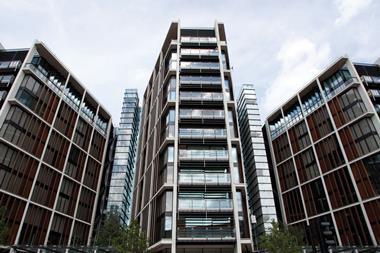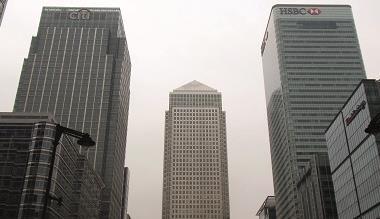The UK real estate market is no stranger to overseas investors - especially those from the Middle East.
However, in recent years there has been a huge influx of cash from members of the various Arab States. This was exacerbated in the era immediately following the “Arab Spring” of early 2011. The principal reasons for this pool of investment are various political and non-political factors across this region and the wider economic world.Traditionally, only the major sovereign funds invest with minor private investments. However, this has now changed significantly. Wealthy families are buying prime UK residential properties for their own use - typically seasonally - but also as rental investments.
While as a “second home” the property will get relatively little use, it will provide a sanctuary and safe place in the event of political change or conflict in a domiciled region. London is a very familiar city to the Middle East and as such is the destination of choice. Real estate has always proved a secure and robust investment with prime central London consistently outperforming other European cities such as Paris, for example.
A large number of Middle Eastern families have chosen to establish offices in London with a view to starting a programme of commercial real estate investment and asset management.
The unique structure of UK lease arrangements means effectively that “bond” style investments are available together with the added comfort of both capital growth and long-term certainty of income. This commodity is not sourced in other European cities so readily. With English a widely spoken language, this also makes alternative destinations such as Paris less appealing.
While the yields and returns are far less than can be achieved in the native investment regions, the risk is mitigated by political stability in the UK. Investing outside the home states also provides diversity and granularity to significant real estate portfolios.
The London property market is also well served by a mature debt market product. Banks and other alternative lenders are very comfortable in gearing well-located assets and, accordingly, debt gearing is readily available in both traditional and sharia formats to enhance and improve returns.
Sovereign funds from across the region including Kuwait, Qatar and UAE are expanding their portfolios with significant purchases of trophy London assets, which are earmarked as long term “hold” opportunities. The objective is generally to seek a “best in class” asset that will hold its own over the next and any future property cycles.
However, there are other regions that have not invested with the same vigour - we have not observed significant transactions for sovereign funds from Saudi, Bahrain or Oman, for instance.
Local partners
Partnering with local knowledge is deemed a positive way to secure a foothold on more labour intensive and asset management driven purchases. Often an experienced local partner can work well with Middle Eastern equity. This partnership can be hugely successful in schemes where planning and development risk are taken. The equity partner, while very committed, is somewhat passive in the sense that it looks to rely on the local skill set and experience.
A great example of sovereign funds co-investing in major developments is London’s Olympic village. This was a joint venture between the Qatar Diar and the Delancey Group of Companies and provided the partnership with a significant PRS scheme in an area that has become a favoured residential location.
Private banks are not slow in recognising the benefits of working with such high net worth families and offices. They have been keen to share opportunities with the Middle East client base, either via a direct purchase or through joint ventures with local UK property companies
Hotels are a favoured asset class among Middle Eastern investors and are typically deemed a “jewel” within a portfolio. Often the purchase of a hotel is more emotional than financially-orientated, the property bought on an “I must have” basis.
Sharia compliant asset purchases are usually the preferred investment asset, thus avoiding casinos, pub portfolios and banking sector tenants. Given the asset class being purchased, sharia compliant debt packages are typical. Most lenders are now able to accommodate sharia lending practices and subject to the requirements of the borrower, this is now a very straightforward process.
Current interest rates have also played their part in driving cash into real estate. As deposit returns remain at historic lows, cash rich clients are increasingly looking to enhance returns.
However, the volatility of Middle Eastern politics and the latest troubles in Syria and the rise of Islamic State are prompting the wealthy to look for safe havens rather than high returns.
Inward investment from the Middle East is now five times what it was 12 months ago and my expectation is it will increase in volume over the next few years as the problems in the region mount.
Raed Hanna is managing director at Mutual Finance.




























No comments yet